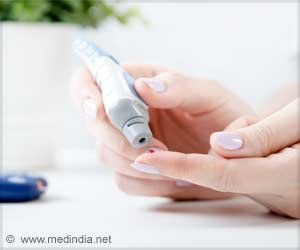Balancing Sweetness and Health in Diabetes

and is frequently recommended as a means of controlling blood glucose in individuals with diabetes. Common NSS include acesulfame K, aspartame, advantame, cyclamates, neotame, saccharin, sucralose,
, and its derivatives.
The World Health Organisation (WHO) recently advised against non-sugar sweeteners like stevia for weight control. However, the experts, at a recent seminar organized by FICCI deliberated on the need to bring out country-specific policy. This comes as a recent study conducted by the Indian Council of Medical Research showed that India is home to 101 million diabetics and 136 million pre-diabetic people.
“It is recommended to reduce the carbohydrate-sugar intake. Substituting added sugar in tea/coffee with one to two tablets is just fine. What is not ok is excess consumption of products just because they don’t have sugar, but are loaded with calories,” said Dr V. Mohan, Chairman and Chief of Diabetology – Dr. Mohan’s Diabetes Specialities Centre, Chennai, at the seminar.
Advertisement
He said that adverse health outcomes of sugar consumption include diabetes, obesity, hypertension & other cardiovascular diseases, liver and kidney disease, and cancer, among others. According to the WHO guidelines, free sugar intake increases overall energy intake which may lead to an unhealthy diet and raise the risk of these diseases.
Exploring Non-Sugar Sweeteners for Diabetes Control
On the other hand, “NSS or low-calorie sweeteners provide a safe option for reducing sugar and calorie intake without sacrificing the sweet taste”, Dr. Mohan said, adding that “moderation may be the key”.
“We have just completed a study on replacing added sugar in daily tea/coffee/ milk with sweeteners to understand its effect on health, and we are presenting the results to the American Diabetes Association. This is one of the largest randomized clinical studies on sweeteners done so far in India,” Dr Mohan said.
“Compared to sugar, the intake of NSS showed benefits and no harm,” he said.
The experts emphasized the crucial role that low/no-calorie sweeteners play in decreasing sugar and calorie consumption, assisting in weight management, and enabling product reformulation following public health recommendations.
National Institute of Nutrition, ICMR, Hyderabad’s former Director Dr. B Sesikeran, emphasized that the risk of consuming sugar is much higher than the minimal risk associated with sweeteners, with limited data from India.
Insights from Health Experts
The experts also emphasized the need for more data to understand the consumption of NNS and their effect on health in the Indian context.
“Prediabetes, insulin resistance is striking sub-clinically across young adults today both in overweight and lean obese. It is evident that the key determinants are total empty calories and the quality of food in the diet. Priming the taste buds to get acquainted with less sweet tastes right from childhood is crucial. While following a healthy diet, these sugar swaps with sweeteners can be a stepping stone which can help in reducing the added sugar intake,” said Dr. Jagmeet Madan, National President of the Indian Dietetic Association, Mumbai.
Source: IANS
Source link
#Balancing #Sweetness #Health #Diabetes



